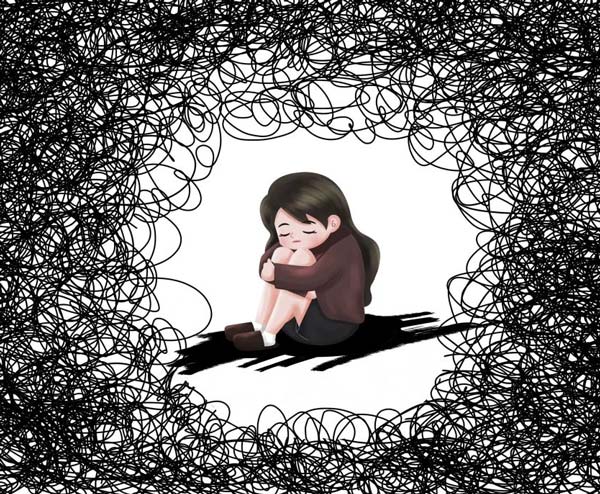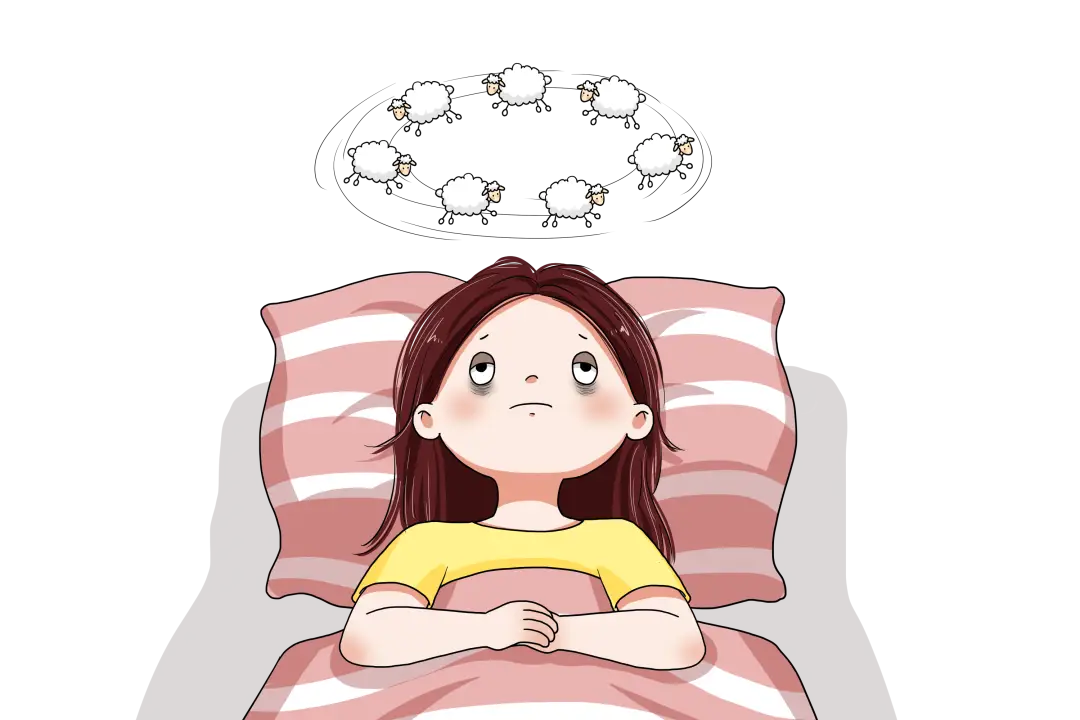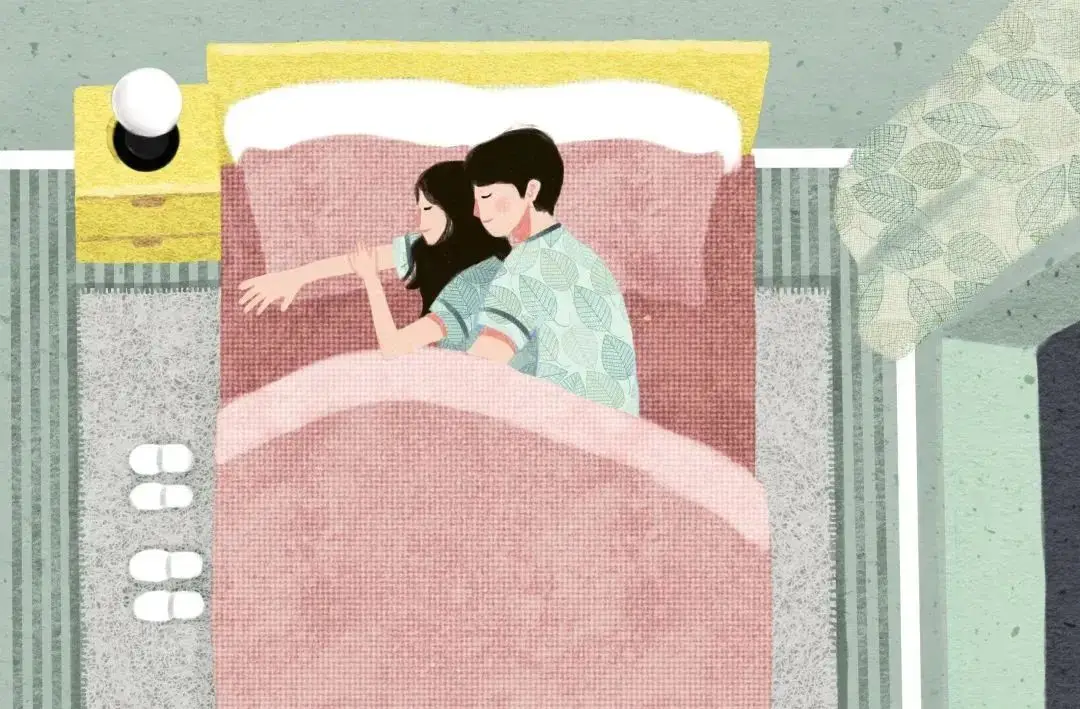Depression, often called the "black dog," causes far more than just persistent low mood. It is often accompanied by various physical symptoms, causing sufferers to suffer both physically and mentally.
Studies have found that the prevalence of physical symptoms in depression is approximately 69%. Depressed patients with physical symptoms often experience poorer treatment outcomes, more severe impairment in social functioning, and are more likely to relapse.

◆ What are some common physical symptoms?
1. Memory loss
Many people with depression experience the painful effects of poor concentration, forgetfulness, and memory loss. The severity of these symptoms varies from person to person, often impacting their personal lives and work.
In addition, in daily life, we must:
- Follow your doctor's instructions and take your medication throughout the entire course. Do not stop without authorization.
- Keep a few sticky notes handy, write down your upcoming to-dos, and place them in a visible place to remind you.
- Carry a notepad with you to keep track of your to-dos so you can easily check them if you forget.
- Chronic negative emotions, such as anxiety, fear, or anger, can impair memory. Therefore, in daily life, it is important to maintain a positive mood, avoid unnecessary stimulation, and engage in relaxing and enjoyable activities (such as walking, listening to music, or painting).
2. Gastrointestinal discomfort
Common symptoms include loss of appetite, nausea, abdominal pain, constipation, diarrhea, and vomiting. Mood and gastrointestinal function are closely related, and depression can lead to physiological reactions, such as changes in stress hormone secretion and decreased gastrointestinal motility.
Coping strategies: Eat regularly, consume easily digestible foods, and avoid excessive amounts of stimulants such as coffee, tea, and alcohol. With consistent antidepressant medication, your appetite will improve significantly as your symptoms improve, and symptoms such as loss of appetite and stomach pain will ease or disappear.
3. Headaches
Many patients with depression experience symptoms such as dizziness and headaches in addition to low mood and bad mood. What should be done when headaches interfere with daily life?
Coping strategies: When patients with depression experience headaches, we must first rule out other medical conditions (such as high blood pressure or brain disease) as the cause. If other conditions have been ruled out, depression should be actively treated, as it is the root cause. In addition, headaches can be alleviated through the following methods:
- Actively treat depression. Headaches may resolve on their own when the patient is relaxed and not overthinking.
- In addition to medication, exercise, music, and travel can also be combined with other activities.
- Maintaining a regular daily routine is crucial for preventing headaches.
4. Insomnia
Approximately 90% of patients with depression experience insomnia, often experiencing difficulty falling asleep, light sleep, frequent dreams, and early awakenings. Difficulty falling asleep is the most common symptom.
Patients with insomnia often experience confusion, exhaustion, and struggle through the darkness of the night.

Coping strategies: Maintain a regular sleep schedule, create a quiet, warm, and dark sleeping environment, and engage in relaxing exercises such as meditation, deep breathing, and progressive muscle relaxation to help you relax and improve sleep quality. Avoid caffeine and stimulants before bed. If necessary, seek professional psychotherapy and medication to help improve insomnia and depression.
5. Fatigue
Even after a full night's sleep, you still feel exhausted the next morning, unable to even get dressed, let alone get out of bed.
This is a comment from someone with depression. The fatigue of someone with depression is difficult to imagine or empathize with for those who haven't experienced it.
This fatigue can affect a person's work and personal life, and may even worsen other symptoms of depression, leading to recurring symptoms.
Coping strategies: Regular low-intensity exercise can effectively alleviate fatigue. Eating a balanced diet rich in protein, unrefined carbohydrates, vitamins, and minerals can also reduce fatigue. Participate in interesting social activities.
6. Chest tightness and palpitations
Depression may cause a rapid heartbeat, a fast or slow heartbeat, or an irregular heartbeat.
Coping strategies: Take deep breaths, exhale slowly, and then inhale slowly. This can help alleviate symptoms such as a rapid heartbeat, shortness of breath, and chest tightness. You can also relax your muscles and gently move your body. Use psychological techniques to change your mindset, such as positive thinking. However, in severe cases, medication may be necessary.
7. Poor sex life
Depression may lead to aversion or disinterest in sex due to fatigue, lack of motivation, loss of interest, and low self-confidence. This can lead to sexual dysfunction, decreased or absent sexual arousal, or decreased sexual satisfaction. Other physical symptoms of depression, such as sleep problems and fatigue, can also affect the quality of your sex life. Furthermore, some medications for depression may affect sexual function.
Coping strategies: Seek psychotherapy under a doctor's guidance to minimize the impact of depression on your sex life. Furthermore, communicating openly with your partner, exploring new interests and hobbies, and promoting interpersonal interaction can also improve this problem.

In addition to the physical symptoms mentioned above, patients with depression may also experience muscle stiffness, shortness of breath, weight loss or obesity, menstrual irregularities, limb weakness, dry skin, tinnitus, and difficulty swallowing. Regardless of any discomfort, it should be reported to a doctor promptly.
Some may ask, "Is chronic physical discomfort and a bad mood a sign of depression?"
This isn't necessarily depression! It could also be a physical illness, requiring further medical attention.
◆ Key Points for Differentiating Physical Symptoms of Depression from Physical Illnesses
1. Mood
Depression often manifests as melancholy, gloom, and a lack of joy. Even if physical discomfort improves, emotional symptoms do not change significantly. In contrast, patients with physical illnesses simply experience a sense of powerlessness and worry and distress about their illness, but this feeling is short-lived. Once the physical discomfort improves, the distress quickly subsides.
2. Clinical Features
The physical symptoms of depression are systemic complaints, such as unexplained fatigue and numbness, accompanied by poor sleep, appetite disturbances (bulimia or anorexia), digestive problems (nausea, bloating), palpitations, and chest tightness. These symptoms are diverse and difficult to describe. Symptoms of physical illnesses, on the other hand, are often localized, often concentrated in specific areas such as the head, chest, heart, or abdomen, manifesting as organ dysfunction, localized fatigue, or sensory loss.
In general, there are significant differences between the two, requiring careful diagnosis and treatment. If you have concerns about your physical symptoms, consult a professional doctor.

%20--%3e%3c!DOCTYPE%20svg%20PUBLIC%20'-//W3C//DTD%20SVG%201.1//EN'%20'http://www.w3.org/Graphics/SVG/1.1/DTD/svg11.dtd'%3e%3csvg%20version='1.1'%20id='图层_1'%20xmlns='http://www.w3.org/2000/svg'%20xmlns:xlink='http://www.w3.org/1999/xlink'%20x='0px'%20y='0px'%20width='256px'%20height='256px'%20viewBox='0%200%20256%20256'%20enable-background='new%200%200%20256%20256'%20xml:space='preserve'%3e%3cpath%20fill='%23FFFFFF'%20d='M194.597,24.009h35.292l-77.094,88.082l90.697,119.881h-71.021l-55.607-72.668L53.229,232.01H17.92%20l82.469-94.227L13.349,24.009h72.813l50.286,66.45l58.148-66.469V24.009z%20M182.217,210.889h19.566L75.538,44.014H54.583%20L182.217,210.889z'/%3e%3c/svg%3e)